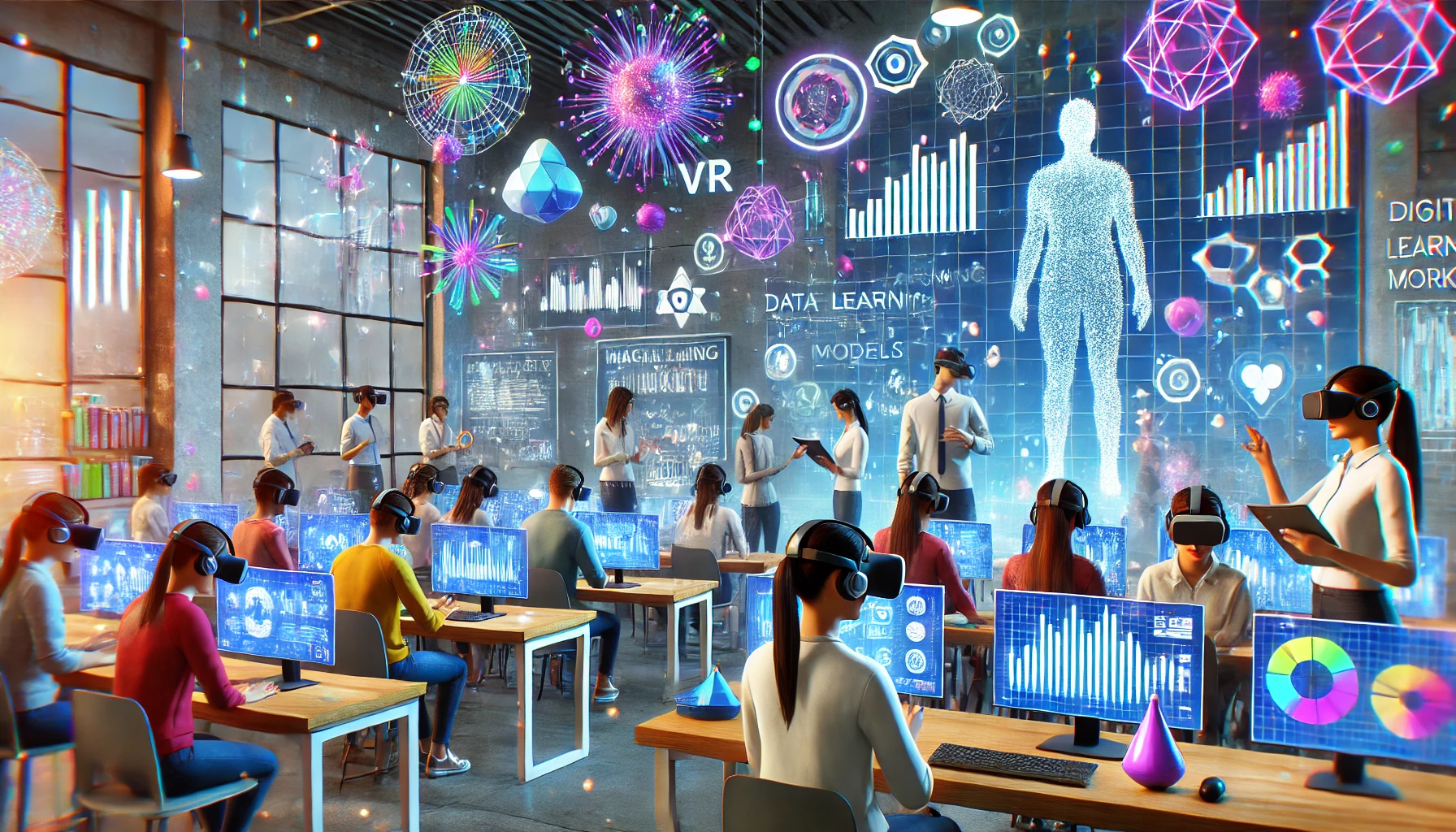Virtual Reality Meets Data Literacy: Exploring the Educational Impact of DataliVR
The study introduces DataliVR, a virtual reality-based platform that enhances data literacy education through immersive, gamified experiences, integrating ChatGPT for personalized assistance. While user experiences improved with the AI chatbot, its impact on learning outcomes was less pronounced, highlighting the need for further research.

Research conducted by researchers at the Technical University of Munich, including experts from the departments of Human-Centered Technologies for Learning and Teaching and Learning with Digital Media explores how the combination of virtual reality (VR) and artificial intelligence (AI) can enhance data literacy skills in university students. The study introduces DataliVR, a VR-based learning platform that integrates ChatGPT, a conversational AI chatbot, to provide personalized learning assistance. The researchers designed the platform to address the limitations of traditional classroom methods in teaching data literacy, emphasizing the need for innovative, immersive, and engaging approaches in today’s data-driven world.
The Importance of Data Literacy in the Modern World
Data literacy, defined as the ability to understand, interpret, and use data effectively, is increasingly recognized as a crucial skill across disciplines. Despite its importance, many educational methods fall short in fully engaging students or providing practical, hands-on experiences that are necessary to develop a deep understanding of data management. Traditional methods, such as lectures or standard educational programs, often do not effectively engage students or provide them with the ability to interact with real data. Furthermore, the assessment of data literacy tends to rely on conventional tests or self-reported questionnaires, which do not always accurately measure students' abilities. In light of these challenges, DataliVR was developed to immerse students in the data lifecycle, providing a contextual and gamified virtual environment where abstract data literacy concepts become tangible experiences. It covers key stages of data management, including data collection, cleaning, analysis, and visualization, and employs machine learning classification as the framework for the learning activities.
How DataliVR Creates a Gamified Learning Experience
The study employed an experimental approach involving 30 university students with diverse academic backgrounds, including education, computer science, law, and engineering. These students had no prior knowledge of machine learning, which made them an ideal sample for evaluating DataliVR’s ability to teach complex data literacy concepts. The participants were divided into two groups: one group had access to the ChatGPT-powered chatbot, while the other did not. The researchers assessed various aspects of the learning experience, including the impact of the chatbot on the participants' task performance, learning progression, and overall satisfaction with the platform. The chatbot, integrated within a virtual avatar, was designed to provide real-time conversational support, allowing users to ask questions and receive personalized guidance as they navigated through the learning tasks.
Positive User Experiences and Unexpected Results
The results showed that participants across both groups generally had positive experiences with DataliVR. They found the system user-friendly and reported that the immersive, gamified approach significantly enhanced their understanding of data literacy concepts. Participants appreciated the interactive nature of the tasks, which included engaging with data through virtual environments designed to simulate real-world data management processes. For example, in the data collection phase, users selected fruits from a virtual market and manually entered data into a system, reflecting how data is typically gathered and organized. This hands-on approach was repeated throughout other stages of the data lifecycle, such as data cleaning, where users identified and corrected outliers, and data analysis, where they applied machine learning techniques to classify the data.
ChatGPT’s Role in Personalized Learning Assistance
Interestingly, while the presence of the ChatGPT-powered chatbot improved user experience, it did not necessarily translate into better learning outcomes. The group without access to the chatbot performed slightly better in both task completion and quiz scores. This unexpected result led the researchers to speculate that the chatbot may have introduced distractions or that the comprehensive design of the DataliVR platform itself was sufficient for participants to complete tasks without additional support. Some participants in the chatbot group reported that they interacted with the AI assistant less frequently than anticipated, with some feeling confident in their ability to complete the tasks without external assistance. Despite this, those who did engage with the chatbot noted that it provided useful guidance and helped clarify certain concepts, indicating that such AI tools could enhance the learning experience when used effectively.
Future Implications for Educational Technology
The study also found that DataliVR minimized common challenges associated with VR learning environments, such as motion sickness, with participants reporting very low levels of discomfort. Additionally, the platform's design was praised for its ease of use and seamless progression between different learning stages. However, the researchers pointed out that further exploration is needed to better understand how to optimize the integration of AI chatbots like ChatGPT in VR-based educational tools. While the chatbot added a valuable layer of interactivity and personalized support, its impact on actual learning outcomes requires more investigation.
The study demonstrates that DataliVR is a highly effective tool for teaching data literacy, offering an immersive, engaging learning environment that significantly enhances students' understanding of complex data concepts. The integration of ChatGPT provided additional support, though its effect on learning outcomes was nuanced, suggesting the need for further refinement in how such AI-driven assistants are used in educational settings. The research contributes important insights into the future of digital education, particularly in how immersive technologies and AI can be leveraged to improve learning in data-centric fields.
- READ MORE ON:
- virtual reality
- artificial intelligence
- ChatGPT
- DataliVR
- chatbot
- FIRST PUBLISHED IN:
- Devdiscourse










